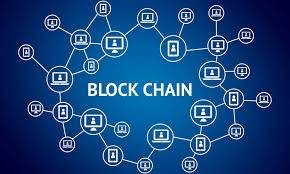*The Blockchain Revolution: Transforming Industries Beyond Cryptocurrency*
When blockchain technology first emerged, it was closely tied to the rise of cryptocurrencies like Bitcoin and Ethereum. However, its potential extends far beyond digital currency. Today, blockchain is revolutionizing industries across the globe, from healthcare and finance to supply chain management and voting systems.
*What is Blockchain?*
Before diving into its applications, let's briefly explore what blockchain is. At its core, blockchain is a decentralized, digital ledger that records transactions across a network of computers. This ledger is secure, transparent, and tamper-proof, making it an attractive solution for industries where trust, security, and efficiency are paramount.
*Healthcare: Secure Medical Records and Clinical Trials*
In healthcare, blockchain is being used to create secure, decentralized medical records. Patients can control access to their records, ensuring confidentiality and data ownership. Additionally, blockchain is streamlining clinical trials by enabling secure data sharing, tracking, and verification.
*Finance: Cross-Border Payments and Smart Contracts*
Blockchain is transforming the finance industry by enabling fast, secure, and low-cost cross-border payments. Smart contracts, self-executing contracts with the terms of the agreement written directly into lines of code, are also gaining traction. These contracts automate processes, reduce intermediaries, and increase transparency.
*Supply Chain Management: Transparency and Accountability*
Blockchain is increasing transparency and accountability in supply chain management. By tracking products from production to delivery, companies can ensure authenticity, quality, and compliance with regulations. This technology also helps identify inefficiencies, reducing costs and improving customer satisfaction.
*Voting Systems: Secure and Transparent Elections*
Blockchain-based voting systems are being explored to ensure secure, transparent, and auditable elections. This technology has the potential to increase voter turnout, reduce fraud, and build trust in democratic processes.
*Real Estate: Property Ownership and Transfer*
Blockchain is streamlining property ownership and transfer processes. By creating a decentralized, tamper-proof record of ownership, blockchain reduces the risk of fraud and increases efficiency.
*Conclusion*
Blockchain technology has far-reaching potential beyond cryptocurrency. Its applications in healthcare, finance, supply chain management, voting systems, and real estate demonstrate its versatility and transformative power. As adoption continues to grow, we can expect to see even more innovative uses of blockchain, leading to increased efficiency, security, and transparency across industries.



No comments yet
Be the first to share your thoughts!